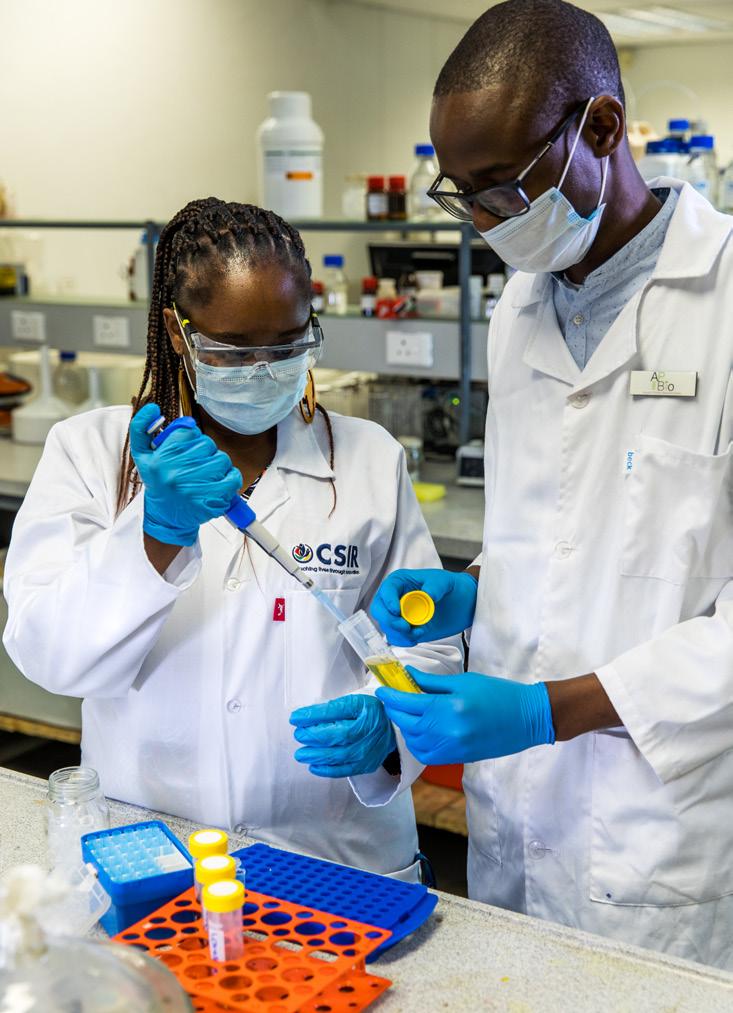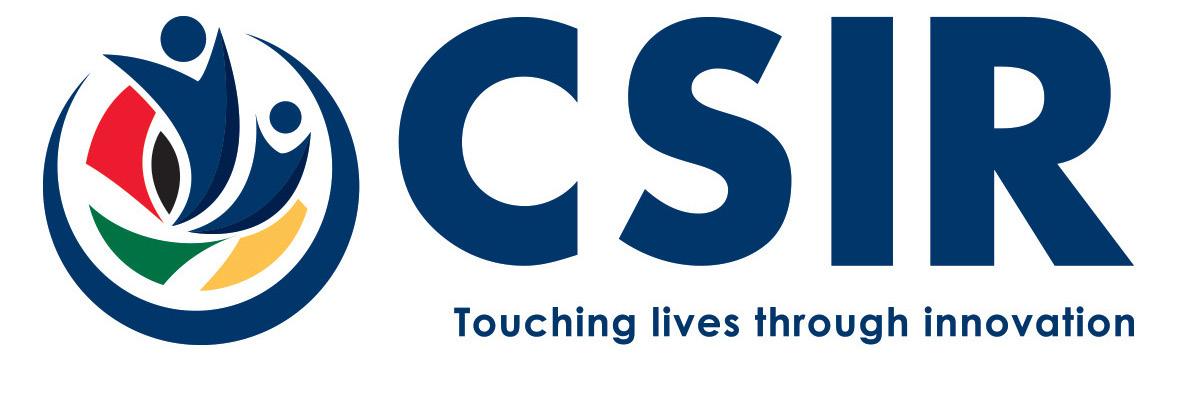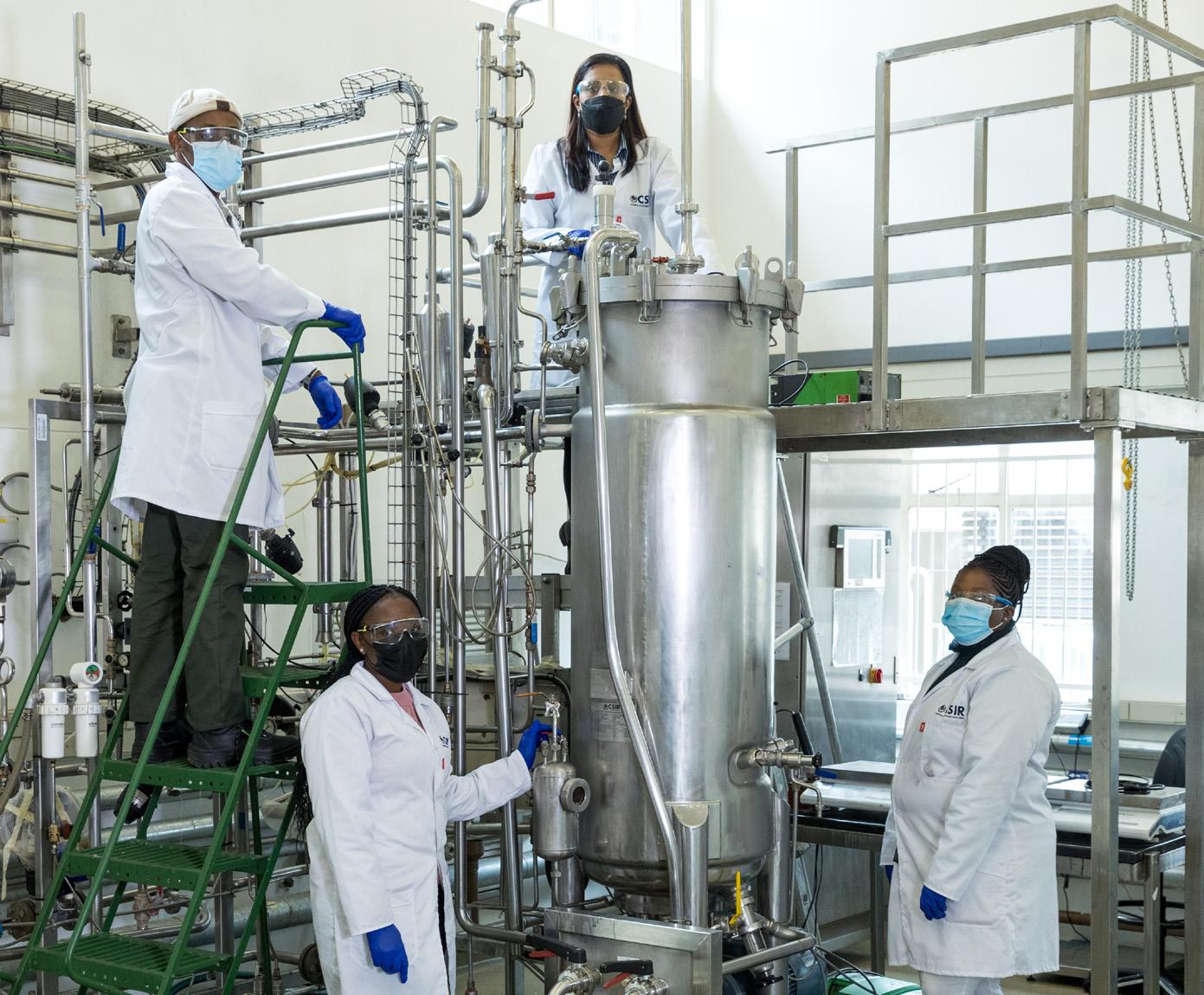
10 minute read
CSIR: Achieves 81% of its targets in the 2021 - 2022 financial year
The Council for Scientific and Industrial Research (CSIR), which strives to help grow the SA economy through leading innovation and finding knowledge solutions, has achieved 81% of its targets in the last financial year.
This was revealed by the CSIR’s Chief Executive Officer, Dr Thulani Dlamini, when he recently presented the organisation’s annual report for the 2021/2022 financial year.
Advertisement
The achievement came despite operating in an environment where most initiatives and programmes in various industries have been negatively impacted by the effects of the Covid-19 pandemic.
The CSIR, a national research organisation which was established in terms of the Scientific Research Council Act (No. 33 of 1945) of the Parliament of the Union of South Africa, is a world-class African research and development organisation that undertakes directed, multidisciplinary research and technological innovation that contributes to the improved quality of life of South Africans.
In 2019, the organisation adopted a new strategy which is aimed at supporting industrial development in the country and to ensure that it makes a greater impact when building and growing industries in the South African economy.
Five key strategic objectives:
Dlamini announced how the CSIR has managed to score achievements in its key five strategic objectives despite operating in a difficult environment due to the pandemic.
The five strategic objectives include:
• Conducting research, development and innovation of transformative technologies and accelerate their diffusion;
• Improving the competitiveness of high-impact industries to support South Africa’s re-industrialisation by collaboratively developing, localising and implementing technology;
• Driving the socio-economic transformation through Research, Development & Innovation (RD&I) which supports the development of a capable state;
• Building and transforming human capital and infrastructure; and
• Diversifying income, maintaining financial sustainability and good governance.
The CSIR saw a major advancement on strategic objective number two relating to improving the competitiveness of high-impact industries to support South Africa’s re-industrialisation by collaboratively developing, localising and implementing technology. The organisation scored an impressive 100% achievement of targets set.
This was an improvement considering that in the 2020/21 financial year, on this objective, the organisation had achieved a 67% achievement. Dlamini stated that there has been a steady increase in the technologies that the CSIR has helped to localise.
“Here we talk about work where technologies solutions that were imported in the past but now get produced locally in South Africa,” Dlamini said.
He also stated that joint technology agreements that have been signed with industry show a steady increase in terms of the contribution made by the CSIR with 25 agreements signed in the last financial year.
Dlamini said though their support to Small, Medium and Micro Enterprises (SMMEs) saw a slight decrease in the last three years, the organisation is now beginning to see an increase in the number of SMMEs that are now being supported.
On the strategic objective number three, which speaks about driving the socio-economic transformation through research, development and innovation which supports the development of a capable state, the CSIR also outdid itself by achieving 100% of the targets set for this objective.
Dlamini said the work that the CSIR has done in the past year showed its relevance in supporting various government initiatives and has seen a “significant increase” in terms of the organisation’s contribution in helping to create a capable state.
Speaking on the CSIR’s national response during Covid-19 Dlamini said that the CSIR partnered with the Department of Health and played an integral role in the development of the digital Covid-19 vaccination certificate.
On the fourth strategic objective which speaks to building and transforming human capital and infrastructure, the organisation scored 75% of its targets.
“One of the issues that we had to address is to grow the set base in the organisation as a result of the decline we saw when we implemented our new strategy. There’s a very positive trajectory in terms of the set base within the CSIR,” Dlamini said. He stated that they have improved or retained their performance with regards to transformation within the organisation and that the CSIR now appoints 2200 employees of which 78% are black and 38% female, after having added 118 new employees in the last financial year.

Dlamini said they have to come up with strategic and creative ways in an attempt to hold on to and increase the number of highly sought-after chief researchers. He said that holding on to this cohort of colleagues is a struggle because they are very attractive to higher education institutions as well as the private sector. “It’s a very competitive space, you are competing with the private sector which can offer financial incentives which we cannot compete with being a public research organisation,” Dlamini said. Despite this the CSIR has managed to increase these numbers over the last financial year. He said beyond the financial incentives, the CSIR offers other benefits which speak to career growth, personal development and other opportunities that the organisation tries to make available to its scientists including building their profiles as researchers.


“We try to create an environment that will try to make us attractive to the researchers and the scientists that we have beyond financial benefits. In an environment like ours, it also affords researchers the opportunity to think creatively as they are not confined. We leave it up to the researcher’s themselves to define which areas of research they wish to pursue as long as it’s aligned with our strategy,” Dlamini said.
He said the CSIR regards its cohort of principal and chief researchers as an important indicator of its capacity to fulfil its mandate and retain its status as a distinguished research organisation on the African continent.
Dlamini said in 2021, they proudly welcomed the advancement of five new chief researchers with two of them being black South African, and a total of 28 principal researchers with 17 being black and 10 being female South Africans. Nine black South Africans are currently being supported for chief researcher positions under this programme which seeks to ensure that chief researchers are being continuously produced.
Dlamini stated that the CSIR saw a decline in strategic objective number 1 related to conducting research, the development and innovation of transformative technology and accelerating their diffusion. The organisation achieved 60% of its targets which reflected a drop from an impressive 80% achieved in the 2020/2021 financial year.
Dlamini said in terms of licence agreements signed with the CSIR’s partners in the last three years, a 140% growth has been recorded in the period. “This is work where we are licensing the intellectual
“If you look at the number of patents granted, this shows a slight decrease over the past three years with an increase in 2021. We find that this figure in terms of patents is a very different number to project because this is, to a large extent, a result of what sits in the pipeline in terms of priority patents we’ve filed in previous years,” Dlamini said, while adding that they have very little control in terms of when the patents get granted in various jurisdictions.
property produced by the CSIR for commercial exploitation with our partners. Again, this is an indication of the contribution that we are making in terms of supporting the creation of new enterprises or the sustainability of existing enterprises,” Dlamini said.
On the objective that speaks to diversifying income and maintaining financial sustainability and good governance, Dlamini said that despite income decreases during Covid-19, the organisation has started to recover and among others, recorded a 50% growth in international income over the past three years.
He said the organisation is now in a very strong financial position with income from the private sector also growing by 32%. The CSIR receives 25% of its funding from the state and generates the rest from other income streams. “These two (income streams) are a very good indicator of the realization of our strategy in terms of our focus on industrial development,” Dlamini said.
Other executives also highlighted some of the achievements of the CSIR in various fields and sectors including agriculture, defence and mining, among others. CSIR Group Executive: Advanced Production and Security, Dr Motodi Maserumule, spoke about the 3D modelling technology which is being introduced in mining to minimise harm to miners to zero.
He said they have developed “a digital twin to simulate and optimise trackless mobile machinery operations as well as the design and configuration of collision avoidance systems in mines.”
Maserumule added that the CSIR has developed a custom, handheld fingerprint device to assist the Department of Correctional Services (DCS) with offender recognition and that this will be able to assist the department in tracking the offenders through the system.
He said the device with its novel fingerprint imaging technology is able to ensure, among other things, ease of verification of an offender between conviction in court, admission to a correctional facility and other rollcall activities during confinement.
Dr Rachel Chikwamba, CSIR Group Executive for Advanced Chemistry and Life Sciences, spoke about initiatives that the organisation was involved in, including the detection of diseases in the aquaculture industry. Chikwamba said the aquaculture industry is an emerging industry that is vital as alternative sources of proteins are being sought in rural communities.
The CSIR has already done work with the CSIR Water Institute in Ghana in which field trials were conducted to detect pathogens that affect the continent’s aquaculture.
“What we are trying to do is to develop a method, at the site of work where you do the aquaculture, to be able to detect if you’ve got a disease in your water and you are able to take control measures before your whole crop is lost or destroyed,” Chikwamba said.
She said linked to the field trials is work that is being done in an effort to find vaccines that could be delivered to support aquaculture.
Chikwamba spoke of a partnership with FarmSol Holdings, a South African Breweries partner and agricultural services company, that has seeded 982 emerging farmers across nine provinces, to deploy the fourth industrial revolution technologies to transform its maize farming extension services by using unmanned aerial vehicles, satellite technologies and big data analytics.
Dlamini said the positive performance that the CSIR had over the past year gives them confidence that the organisation is well on track to achieve its objective of supporting the creation of a very capable state and supporting industrial development.

CONTACT DETAILS
Tel: 012 841 2911
Email: enquiries@csir.co.za Website: www.csir.co.za
Address Meiring Naudé Road, Brummeria, Pretoria










